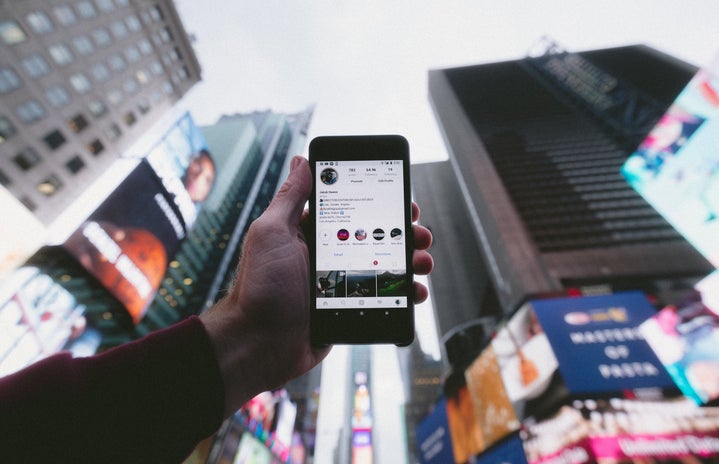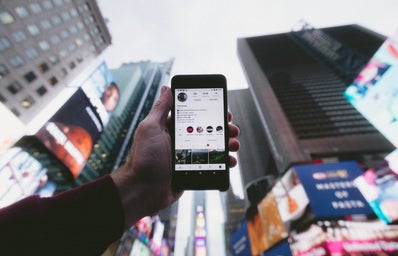Molly-Mae Hague, Creative Director of PrettyLittleThing, recently made headlines after making some controversial comments during her appearance on the Diary of a CEO podcast. Molly-Mae originally rose to fame as a social media influencer and after appearing on the fifth season of the reality dating show Love Island (UK). On the podcast, she spoke about the philosophies that have guided her throughout her career success. She remarked, “Beyoncé has the same 24 hours in the day that we do, and I just think, like you’re given one life and it’s up to you what you do with it. You can literally go in any direction.”
These comments set the internet aflame. Many criticized Molly for sounding privileged and ignorant. One tweet from @tsrbys read, “If you’re homeless just buy a house.” In light of the backlash, Molly wrote on her Instagram story, “I apologise to the people that have been affected negatively or misunderstood the meaning of what I said in the podcast.”
Now, I will acknowledge that I am a fan of Molly (I didn’t watch her 50 episode Love Island season for nothing). And I can’t deny that the controversial philosophy she relayed, which originally gained internet popularity back in 2014, along with Nasty Gal founder Sophia Amoruso’s coining of “girlboss,” can be inspirational – when I think it to myself. However, it doesn’t feel particularly nice to hear this sentiment from someone who accumulated their wealth through social media, reality TV, and seemingly, luck. In her failure to acknowledge this untraditional path in her remarks, Molly did indeed “girlboss too close to the Sun.” Although I am not trying to discount Molly’s work, Molly’s adoption of this mindset suggests that she believes her rise to fame and wealth was due exclusively to hard work without considering her racial (and arguably pretty) privileges, and, again, her luck.
The backlash to Molly-Mae’s comments was as much an expression of frustration with her as it was an expression of frustration with a society that gives people a platform over people who are arguably more deserving. As linguist and Stanford Graduate School of Education professor Anne Charity Hudley describes in her analysis of cancel culture, “Canceling is a way to acknowledge that you don’t have the power to change structural inequality […] You don’t even have the power to change all of public sentiment. But as an individual, you still have power beyond measure.” Cancel culture has allowed ordinary people, especially those who are disadvantaged by the very power structures that propelled Molly’s ascension to fame, to reclaim power (or at least an artificial sense of it).
Valid criticism aside, this incident once again brings up the debate about the merits of cancel culture, and in this case, how it can often be more harmful than not. Cancel culture has been instrumental in exposing now-convicted rapists Harvey Weinstein and Bill Cosby. However, using the same tactics to critique Molly Mae’s poor choice of words equates ignorance with serious offenses, like criminal sexual misconduct. Furthermore, as the entertainment industry becomes more and more dependent on likes, views, and comments, cancel culture inherently works against itself as it gives more likes, views, and comments to the very people it aims to de-platform.
Most importantly, cancel culture misses out on an opportunity to educate people who were ill-informed rather than ill-natured. As Aaron Rose, a corporate D.E.I. adviser, explains, “Mainstream internet activism is a lot of calling out and blaming and shaming […] We have to get honest with ourselves about whether calling out and canceling gives us more than a short-term release of cathartic anger.” If we truly want to create a better society and demand better from each other, we should expect more from influencers than underwhelming apologies laced with crocodile tears, performative social media breaks, and sold-out sympathy tours after emerging from what has essentially become “social media jail.”
Even in Molly’s apology, she apologizes for how she made people feel – not for the actual content of her statement. She still does not understand the roots of the criticism she faced, which suggests that the cancel culture criticism failed to effectively communicate why she was wrong beyond just making people upset. Evidently, using cancel culture to get a point across overshadows the actual point and leaves the recipient defensive and still ignorant.
When we become wrapped up in spewing hateful comments at someone who was merely misinformed, we are wasting our own precious time. Molly-Mae currently has 6.2 million followers on Instagram alone. That is 6.2 million people who could have witnessed Molly process the criticism and learn from it. Instead, since it has become difficult to distinguish between meaningless internet hate and genuine constructive criticism, the power of social media backlash has become diluted. When people legitimately deserve to be canceled (e.g. rapists), canceling them will no longer mean anything. What’s worse is that cancel culture gives those deserving of being canceled a way to victimize themselves and further avoid accountability for abusing actual victims.
Obviously, I don’t know Molly. It is possible she has no interest in understanding why she was wrong. Still, this incident is just one of the many examples of taking cancel culture too far. The goal of calling out people on social media should be to educate them – not necessarily for the sake of their feelings, but for the opportunity to utilize someone’s massive following to educate a large number of people. Until we redirect cancel culture towards those who deserve it and have more faith in people’s capacity to learn and grow, the current method of using social media to cancel people is overshadowing those possibilities.

